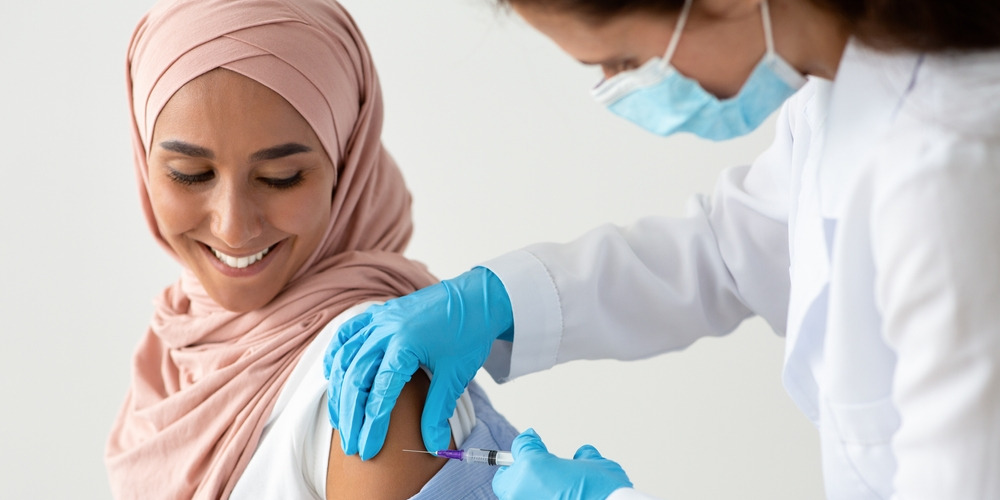IFANCA® and UNICEF USA team up to address health security
At IFANCA, our mission involves promoting food security, nutrition equity, and health security. Our organization was founded in 1982 to help companies meet the needs of halal consumers, and our core mission was, and continues to be, making halal accessible for everyone. This includes enabling access to halal products so that halal consumers can feel food and health secure while simultaneously preserving their core religious values.
At IFANCA, we want to increase access to nutritious food and critical pharmaceuticals for halal consumers around the world to ensure the future health security of the global population. Currently, the COVID-19 pandemic represents the biggest threat to the health of people worldwide, which is why we turned our attention to the global COVID-19 vaccination effort. We want to bring attention to the pressing health needs of the Muslim population, a task that requires us to look at the aggregate factors harming an individual’s wellbeing.
In the article “Covid-19 Vaccination Efforts in Muslim Nations Try to Overcome Halal Concerns” in the Wall Street Journal, Saeed Shah and Jon Emont note that a study of opinion on vaccines in 149 countries published in the Lancet medical journal in September 2020 demonstrated how vaccine hesitancy remains a serious issue in the Muslim world. According to the study, seven of the ten countries with the lowest trust in vaccines are Muslim-majority countries. Therefore, for us at IFANCA to live up to our mission of promoting health security among halal consumers, these findings mean that our role requires us to examine the reasons why some Muslims remain vaccine-hesitant.
To achieve this mission, we partnered with UNICEF USA to support UNICEF’s ongoing work with the Access to COVID-19 Tools Accelerator (ACT-A) initiative that delivers needed vaccines, therapeutics, and diagnostics to vulnerable populations around the world. As part of this partnership, IFANCA is providing UNICEF USA with a $3 million grant over the next five years. However, our goal is not limited to supplying UNICEF USA with financial support. Rather, we seek to share with UNICEF USA the concerns of the Muslim community as a whole. UNICEF has unrivaled expertise in vaccine procurement and distribution, while IFANCA’s expertise is in raising awareness of halal consumers’ concerns. Through our partnership, we can work together and use our combined expertise to improve health security for children and their communities.
We want to foster a dialogue about why individuals remain vaccine-hesitant, both regarding the COVID-19 vaccine and vaccines in general. In order to do so, IFANCA seeks to build a coalition of non-profit organizations, community leaders, religious scholars, and scientific experts to bring the concerns of halal consumers to the table. Our team of esteemed religious scholars and food industry experts are able to engage with relevant actors across the spectrum, such as the pharmaceutical industry, health professionals, and consumers. Without knowing the exact reasons for vaccine hesitancy among members of our community, we cannot work to allay their fears. This coalition will help us identify the areas of concern, as well as brainstorm possible solutions.
Vaccines are responsible for saving millions of lives, but they are only successful when individuals agree to take them. Please join us to make health security a global priority. Your ideas, partnership, and resources can help us achieve this goal. Now is the time to give the Muslim community a voice in discussions of food and health security.
ASMA AHAD is the director of halal market development at IFANCA. She spearheaded the effort that led to IFANCA’s partnership with UNICEF USA and continues to work to promote nutrition equity and health security for all.
ALISON DEGUIDE is a content developer at IFANCA, as well as the editor of Halal Consumer© Magazine. She holds a master’s degree in public diplomacy from the University of Southern California, where she also did her undergraduate studies.

Asma Ahad and Alison DeGuide